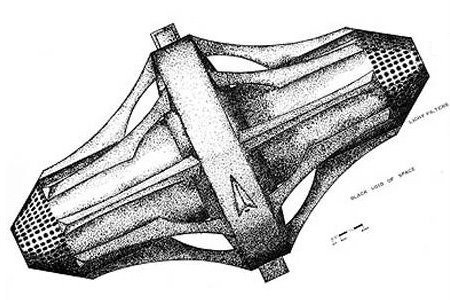After 40+ years San Francisco seems to be the first city on the Planet Earth/Gaia to get a clue about Soleri's work and ideas! Bucky Fuller mentions somewhere that on average it takes 50+ years for an Innovation to really catch on….so 10 more years to go! Stewart Brand featured Soleri way back in the Fall of 1968 in the Whole Earth Catalog! Arthur C. Clarke in his farewell video last Dec., 2007, said that it only took 25+ years for 1/2 of Humanity to get cell phones! That's over 3+ billion people! A video last month showed the first cell phone being used 35+ years ago…. The Digital Be-In is pleased to be honoring urban designer Paolo Soleri,who is appearing at the Ecocity World Summit in San Francisco, with a special presentation on his major contributions to the sustainable city movement.
http://www.be-in.com/
|
5:00pm |
Short Break |
http://www.ecocityworldsummit.org/program.htm
See one of Soleri's earliest Arcologies, Asteromo! One of the first space colonies ever designed, circa 1969?!  fromhttp://pruned.blogspot.com/2006/02/asteromo.html
fromhttp://pruned.blogspot.com/2006/02/asteromo.html


